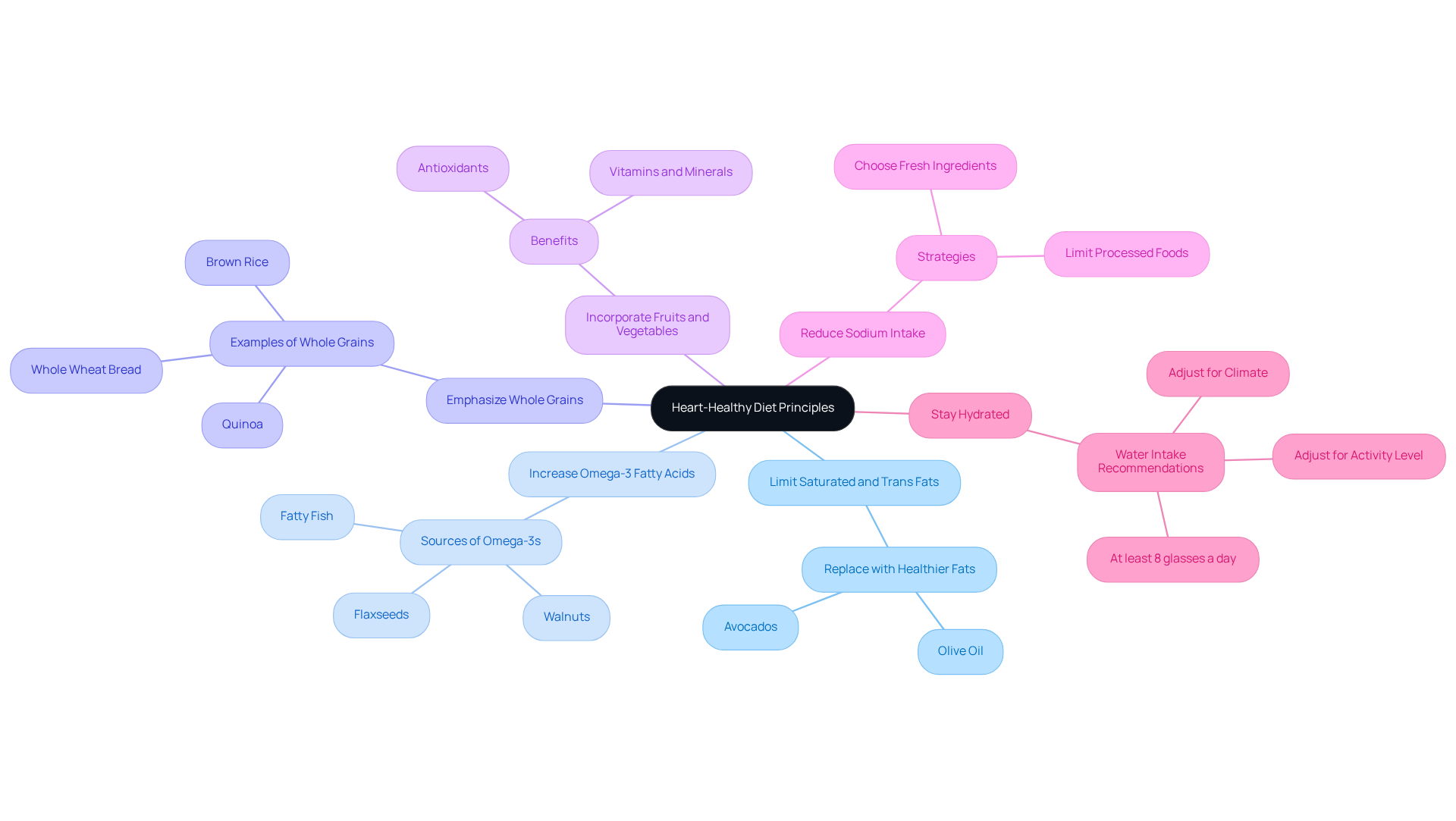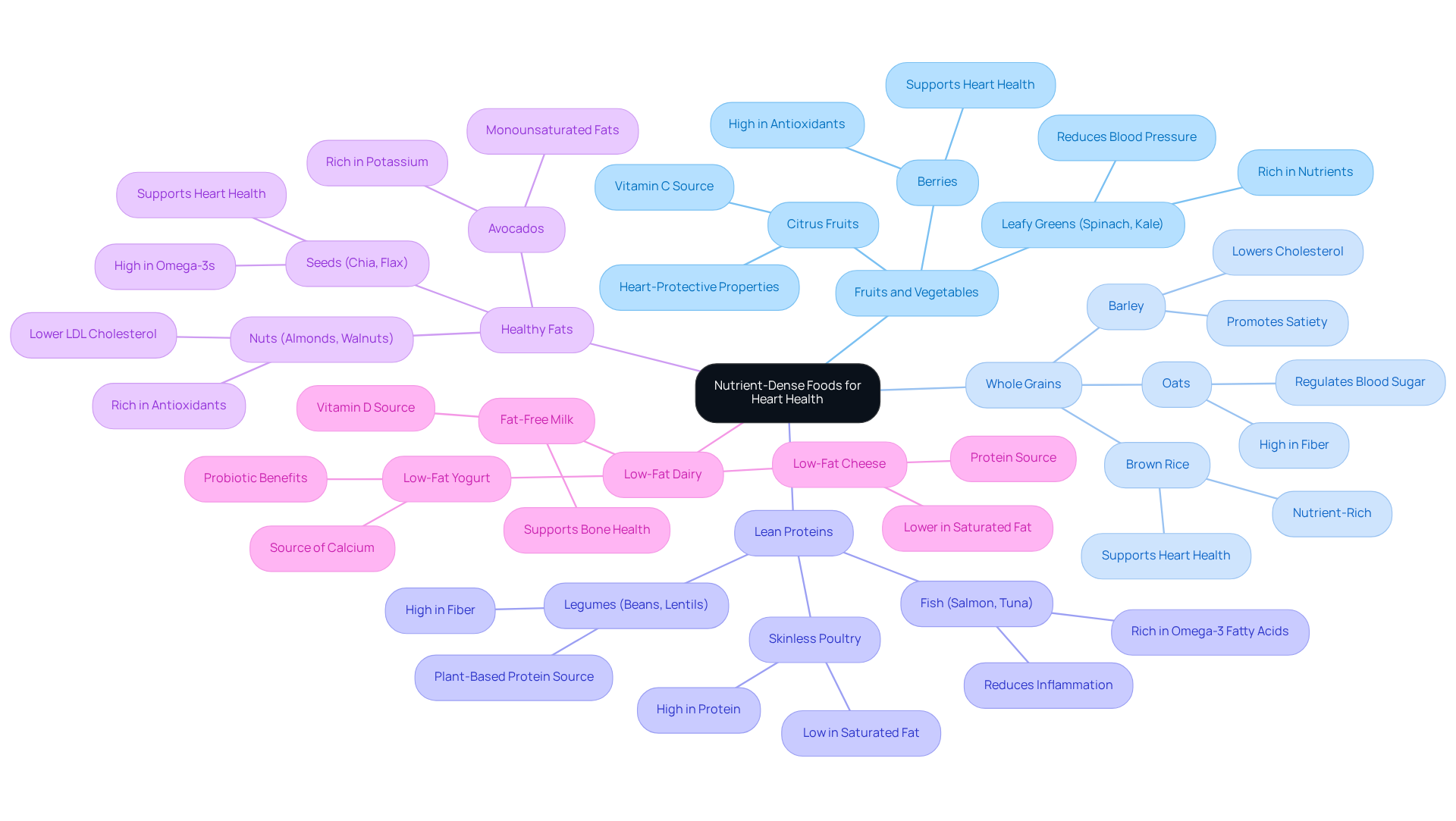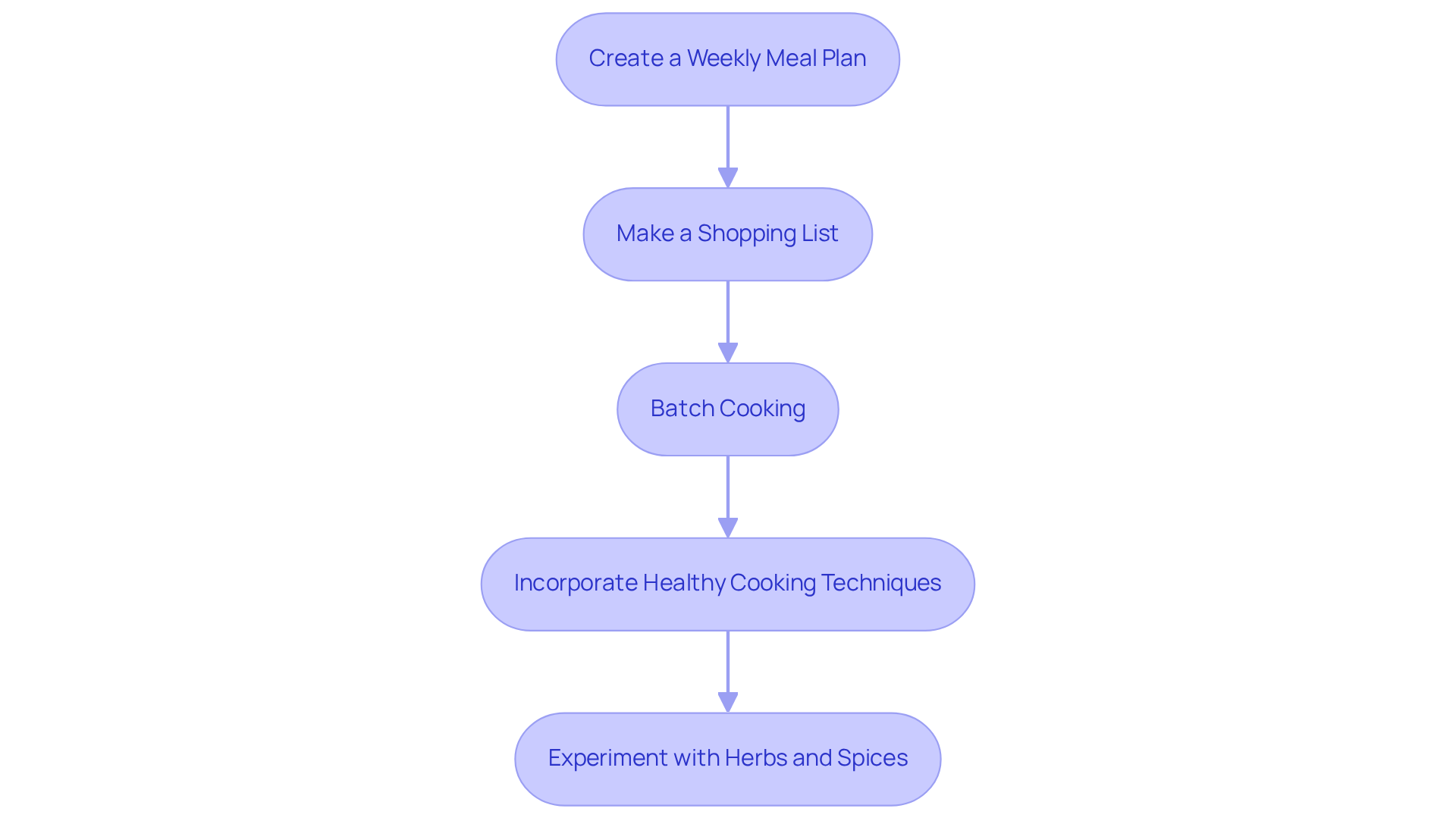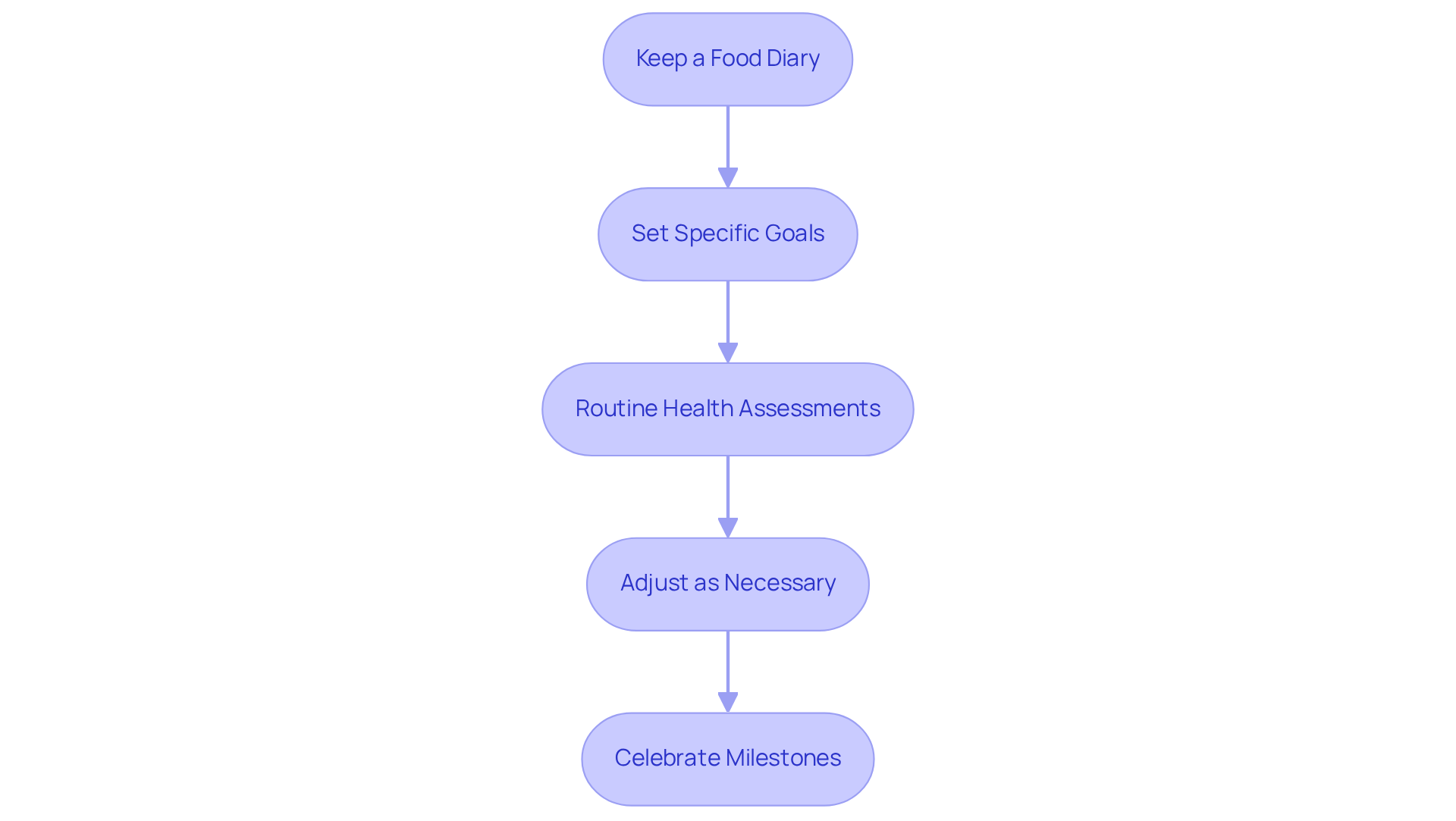


Creating a heart-healthy diet plan can feel overwhelming, especially if you're concerned about your health. But don't worry; you're not alone in this journey. This article gently guides you through a four-step approach that can help you embrace a healthier lifestyle.
First, it’s essential to understand the dietary principles that support heart health. This means focusing on whole grains, lean proteins, and healthy fats. These foods not only nourish your body but also play a crucial role in reducing the risks of heart disease. In addition to this, choosing nutrient-dense foods can make a significant difference in how you feel day-to-day.
Next, planning your meals can seem daunting, but it’s a wonderful opportunity to take control of your health. Think of it as a chance to explore new recipes and flavors that you might enjoy.
Furthermore, tracking your progress can be incredibly motivating. It allows you to see how far you’ve come and reinforces your commitment to a healthier lifestyle.
Remember, each small step you take is a victory. If you ever feel uncertain or need support, don’t hesitate to reach out for help. You deserve to feel your best, and there are resources available to guide you along the way.
Together, we can work towards improving your cardiovascular health and overall well-being.
Creating a heart-healthy diet plan is more than just a nutritional choice; it’s a vital commitment to long-term wellness. Have you ever wondered how your food choices can impact your heart health? By understanding the principles of heart health and incorporating nutrient-dense foods, you can significantly reduce your risk of heart disease while enhancing your overall well-being.
However, with so much information available, navigating the complexities of meal planning, preparation, and progress tracking can feel overwhelming. How can you ensure lasting success in this journey? This guide offers a straightforward approach, breaking down the essential steps to cultivate a diet that not only supports cardiovascular health but also fosters a happier, healthier lifestyle. Remember, you’re not alone in this; we’re here to support you every step of the way.
Taking care of your heart is essential for a long and healthy life. A heart diet plan that supports your cardiovascular system can help lower the risk of heart disease and improve your overall vascular health. Here are some gentle guidelines to consider:
Limit Saturated and Trans Fats: These fats can raise your cholesterol levels, which may increase the risk of heart disease. Instead, try to replace them with healthier fats found in olive oil and avocados. It’s a small change that can make a big difference.
Increase Omega-3 Fatty Acids: Foods like fatty fish, walnuts, and flaxseeds are rich in omega-3s, which are known to reduce inflammation and lower blood pressure. Including these in your meals can be a delicious way to support your heart.
Emphasize Whole Grains: Whole grains such as brown rice, quinoa, and whole wheat bread are packed with fiber. This helps lower cholesterol and maintain a healthy weight, making them a great choice for your meals.
Incorporate Fruits and Vegetables: Aim for a colorful plate! Fruits and vegetables are full of vitamins, minerals, and antioxidants that promote heart health. They not only nourish your body but also add flavor and variety to your diet.
Reduce Sodium Intake: High sodium levels can lead to hypertension. Try to choose fresh ingredients and limit processed foods, which often contain hidden salts. Your heart will thank you for it.
Stay Hydrated: Drinking enough water is vital for your overall well-being, including your heart's function. Aim for at least 8 glasses a day, adjusting based on your activity level and the climate.
By understanding and applying these principles, you can create a solid foundation for your nutrition strategy. Remember, you’re not alone on this journey. Embracing these changes can lead to a healthier, happier you.

When developing your dietary plan, it’s essential to prioritize nutrient-rich items that offer significant wellness advantages. Let’s explore some key categories that can truly make a difference in your health:
Fruits and Vegetables: Aim for at least 5 servings daily. Berries, leafy greens like spinach and kale, and citrus fruits are particularly beneficial due to their high antioxidant content and heart-protective properties. Did you know that studies show daily consumption of fruits and vegetables can significantly reduce the risk of cardiovascular disease? In fact, regular intake is linked to a 40% reduction in the risk of myocardial infarction, as highlighted by the INTERHEART Study.
Whole Grains: Incorporate whole grains such as oats, barley, and brown rice into your meals. These foods are not only satisfying but also help regulate blood sugar levels, which is crucial for cardiovascular well-being, especially for those managing diabetes. The Whole Grains and Heart Disease Prevention study emphasizes that choosing whole grains over refined carbohydrates can lower the risk of cardiovascular diseases.
Lean Proteins: Opt for skinless poultry, fish, beans, and legumes as your primary protein sources. These options provide essential amino acids while minimizing saturated fats, often found in red meats. The American Heart Association recommends enjoying fatty fish like salmon twice a week for their omega-3 fatty acids, known for reducing inflammation and supporting heart rhythm.
Healthy Fats: Include sources of unsaturated fats such as nuts, seeds, and avocados. These fats can help lower LDL cholesterol levels, promoting better cardiovascular health. A small handful of unsalted nuts each day can be a wonderful snack that supports your heart.
Low-Fat Dairy: Choose low-fat or fat-free dairy products to get your calcium and vitamin D without the extra saturated fat found in full-fat options.
By focusing on these nutrient-rich foods, you can develop a heart diet plan that not only supports cardiovascular wellness but also enhances your overall well-being. Additionally, consider incorporating the DASH approach and Mediterranean eating principles, both recognized for their effectiveness in promoting heart health. Remember, you’re not alone on this journey; taking these steps can lead to a healthier, happier you.

To truly embrace a heart diet plan, organizing and preparing your meals ahead of time can make a world of difference. Every meal and snack presents a chance to choose nutritious options that nourish your body. Here are some gentle steps to guide you:
As Hippocrates wisely said, "Let food be your medicine and medicine be your food." By planning and preparing your meals, you can seamlessly integrate a heart diet plan into your lifestyle, especially in a fast-paced world that often overlooks proper nutrition. Additionally, practicing mindful eating can help you become more aware of your habits, further supporting your journey toward better health. Remember, you’re not alone in this; taking these steps is a wonderful way to care for yourself.

Tracking your progress is vital for ensuring your heart diet plan truly works for you. It’s not just about numbers; it’s about your journey towards better health. Here are some gentle strategies to help you along the way:
By tracking your progress and making adjustments as needed, you can ensure that your diet plan for heart health remains effective and aligned with your health goals. At Amavita, we’re committed to supporting you with comprehensive heart health monitoring, so you never have to feel alone on this journey.

Creating a heart diet plan is a meaningful step towards enhancing your overall health and well-being. Have you ever thought about how a heart-healthy diet can lower your risk of heart disease? By embracing these principles, you can enjoy a variety of delicious and nutritious foods that nourish your body. This journey isn’t just about knowing what to eat; it’s also about how to prepare and plan meals that support your cardiovascular health.
Key insights from this guide emphasize the importance of incorporating nutrient-dense foods like:
into your daily meals. Planning and preparing meals ahead of time can make a significant difference. Tracking your progress and making necessary adjustments are essential strategies for maintaining a successful heart diet plan. Remember, each small change contributes to a larger impact on your heart health. Mindful eating and proactive choices can lead to significant benefits.
Ultimately, prioritizing heart health is a crucial investment in a longer, healthier life. By taking actionable steps towards creating a heart-healthy diet, you not only improve your cardiovascular wellness but also foster a deeper connection with your overall nutrition. Embrace this journey of better health, and let each meal be a step towards a brighter, heart-healthy future. You’re not alone in this; support is always available, and every effort you make is a step in the right direction.
Why is a heart-healthy diet important?
A heart-healthy diet is essential for lowering the risk of heart disease and improving overall vascular health, contributing to a long and healthy life.
What types of fats should I limit in my diet?
You should limit saturated and trans fats as they can raise cholesterol levels and increase the risk of heart disease. Instead, opt for healthier fats found in olive oil and avocados.
How can I increase my intake of omega-3 fatty acids?
You can increase your intake of omega-3 fatty acids by including foods like fatty fish, walnuts, and flaxseeds in your meals.
Why are whole grains important for heart health?
Whole grains such as brown rice, quinoa, and whole wheat bread are high in fiber, which helps lower cholesterol and maintain a healthy weight.
How many servings of fruits and vegetables should I aim for?
Aim for a colorful plate by incorporating a variety of fruits and vegetables, which are rich in vitamins, minerals, and antioxidants that promote heart health.
What is the impact of sodium on heart health?
High sodium levels can lead to hypertension, so it's important to reduce sodium intake by choosing fresh ingredients and limiting processed foods that often contain hidden salts.
How much water should I drink for heart health?
Aim to drink at least 8 glasses of water a day, adjusting based on your activity level and climate, as staying hydrated is vital for overall well-being, including heart function.